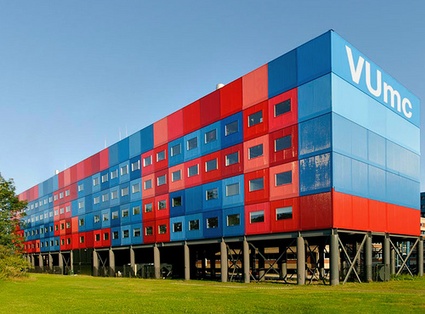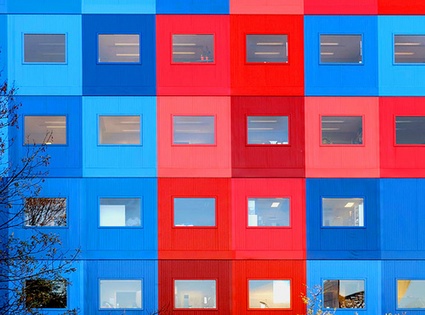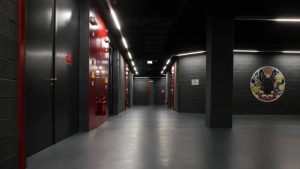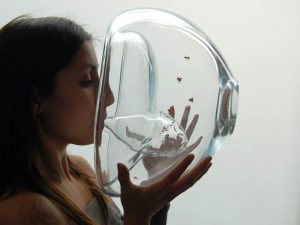Container Atlas – A Practical Guide to Container Architecture, edited by Prof. Han Slawik, Julia Bergmann, Matthias Buchmeier and Sonja Tinney (available on amazon UK and USA.)
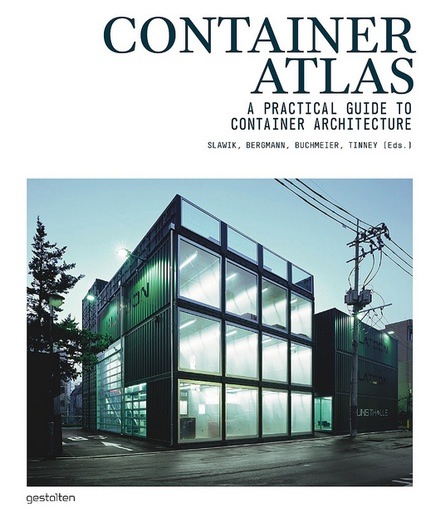
Publisher Gestalten says: This book presents a wide range of projects in container architecture – a contemporary architectural phenomenon. It features container structures used as pop-up stores and temporary exhibits as well as sophisticated housing and office spaces that provoke and inspire while setting new standards in functionality and aesthetics. But the book is not only visually inspiring. Because it documents plans, describes associated costs, and suggests concrete solutions for common problems, it is a practical reference for architects, planners, and cultural activists as well as event and marketing managers, to guide them in deciding what types of containers are best suited to their upcoming projects.
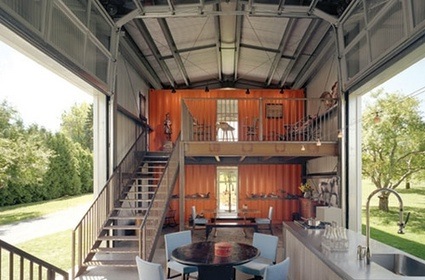 Adam Kalkin, 12 Container House
Adam Kalkin, 12 Container House
Here’s one book i picked up thinking i’d have nothing but a moment of harmless fun. The kind you find inside coffee table books with spectacular pictures and next to no text. How wrong i was! The word “Practical” in the title should not be underestimated. Container Atlas contains indeed plenty of information for anyone willing to live or work inside a container: transportation, construction laws, ecological impact, hidden costs and other economic aspects, even construction physics.
Interestingly, the volume opens on the history of container transportation. It’s not exactly a fairy tale. The man responsible for the standardization and worldwide adoption (nowadays, some 90% of non-bulk cargo transits by sea inside containers) of the metal box. Malcom McLean is depicted as a man keen on achieving maximum profit and efficiency. He was a brilliant businessman, not a philanthropist. For example, he would crush the habits of giving names to trucks and of placing nametags inside the driver’s can. Convinced that a company that allowed employees to develop a personal relationship to one particular truck could not run efficiently, he gave trucks numbers.
Containers have since then been used as emergency housing for asylum seekers, temporary buildings in disaster areas or as construction site offices.
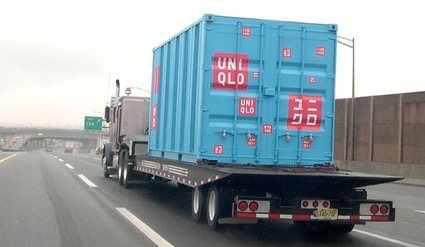 LOT-EK, Uniqlo container store, 2006
LOT-EK, Uniqlo container store, 2006
The dozens of architects, designers and artists whose work is presented in the book managed to, at at last!, bring emotion and personality to the stern container. And that’s where the fun i was expecting begins. Whether they are used as part of a more ‘traditional’ architecture or as the sole building blocks of a dwelling, whether they are used as a cheap and quirky way to advertise how edgy a company (cf. Freitag’s flagship store in Zurich and that pop Puma City) or to bring culture on a city square, containers prove that they can outdo the stigma of the standardized box:
A spectacular 100 square-meter tea pavilion suspended above the ground overlooking the Sea of Japan.
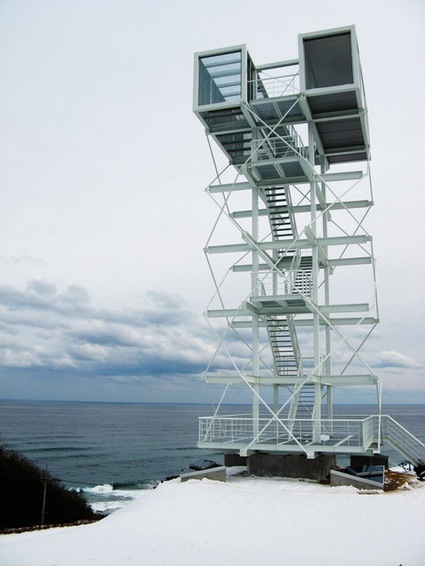 Bureau des Mésarchitectures, Sky is the Limit, 2008, in Yang-yang, South Korea
Bureau des Mésarchitectures, Sky is the Limit, 2008, in Yang-yang, South Korea
sculp(IT) did the most brilliant job at turning a space only 2.4 meters (7 feet 10 inches) wide into a living / working space as well as a light installation. They are located in Antwerp’s red light district after all.
Let’s fire up the pictures:
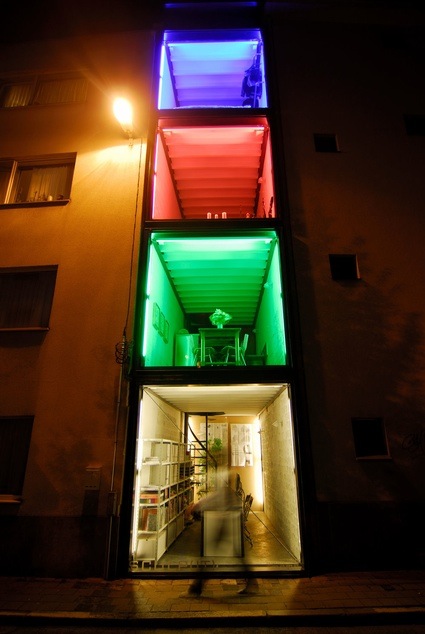 Sculpt(it), Headquarters, 2008. Photography by Luc Roymans
Sculpt(it), Headquarters, 2008. Photography by Luc Roymans
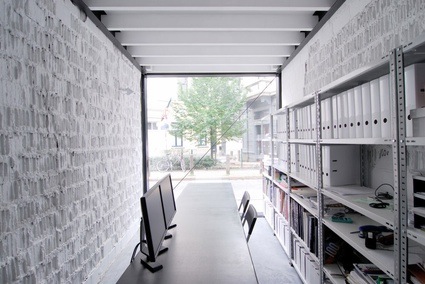 Sculpt(it), Headquarters, 2008. Photo Luc Roymans
Sculpt(it), Headquarters, 2008. Photo Luc Roymans
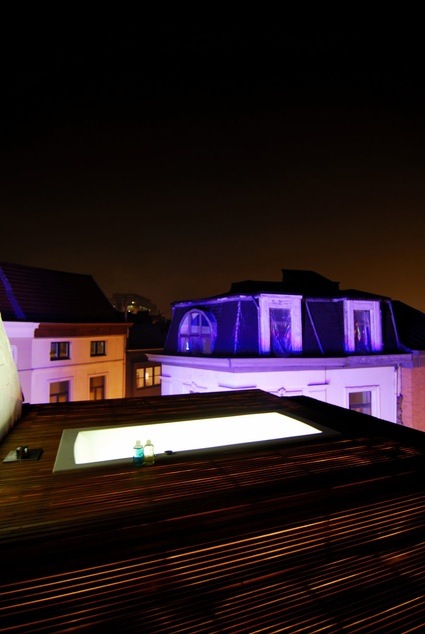 Sculpt(it), Headquarters, 2008. Photo Luc Roymans
Sculpt(it), Headquarters, 2008. Photo Luc Roymans
Angela Fritsch Architekten‘s Gold Pavilion in the park of The Alice-Hospital vom Roten Kreuz in Darmstadt, Germany. The container box is covered with a wallpaper made out of sheet metal. The light comes through the cut-out ornamental leaves.
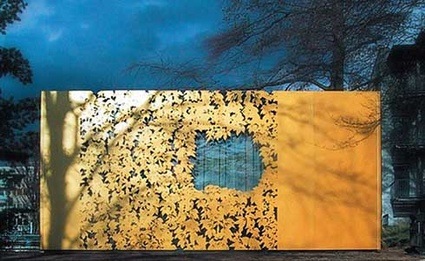
 Angela Fritsch Architekten, Gold Pavilion
Angela Fritsch Architekten, Gold Pavilion
The Cancer Center in Amsterdam is a semi-permanent structure erected while the research and treatment clinic was rebuilt and enlarged. The 7 storey building was built within a year.
Just added on my wish list:
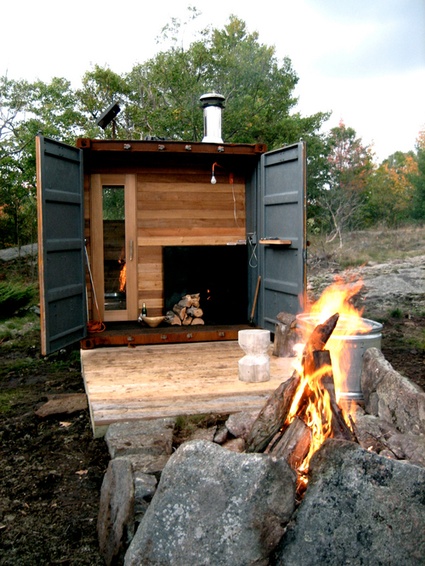 Castor Design, the Sauna Box
Castor Design, the Sauna Box
Not sure my eyes will ever recover from the brashness of these sanitary facilities:
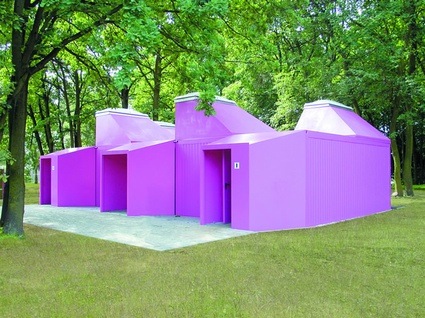 AFF Architekten, Sanitary facilities for Summer camp in Magdeburg (Germany)
AFF Architekten, Sanitary facilities for Summer camp in Magdeburg (Germany)
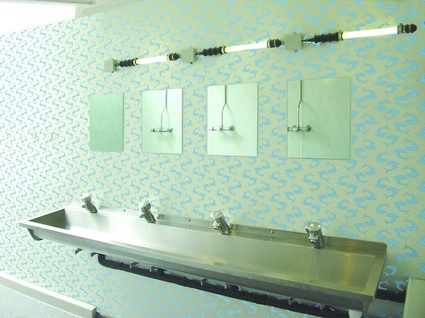 AFF Architekten, Sanitary facilities for Summer camp in Magdeburg (Germany)
AFF Architekten, Sanitary facilities for Summer camp in Magdeburg (Germany)
Views inside the book:
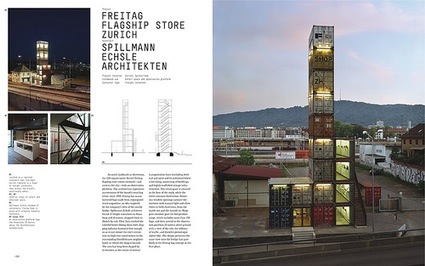
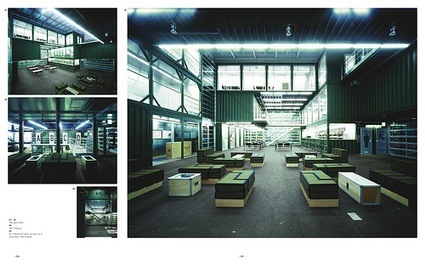
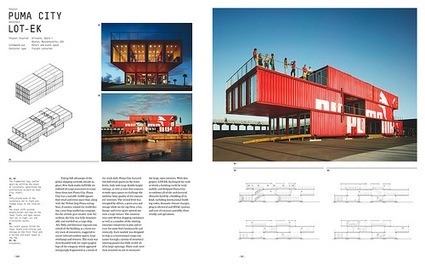
Image on the homepage: Sjakket Youth Center by PLOT = JDS + BIG.
More container stories: Ann Veronica Janssens at the EACC in Castellon, Spain, Mission Eternity and 17 containers for a concept store.

